Walter Tan and Teo Wei Ping
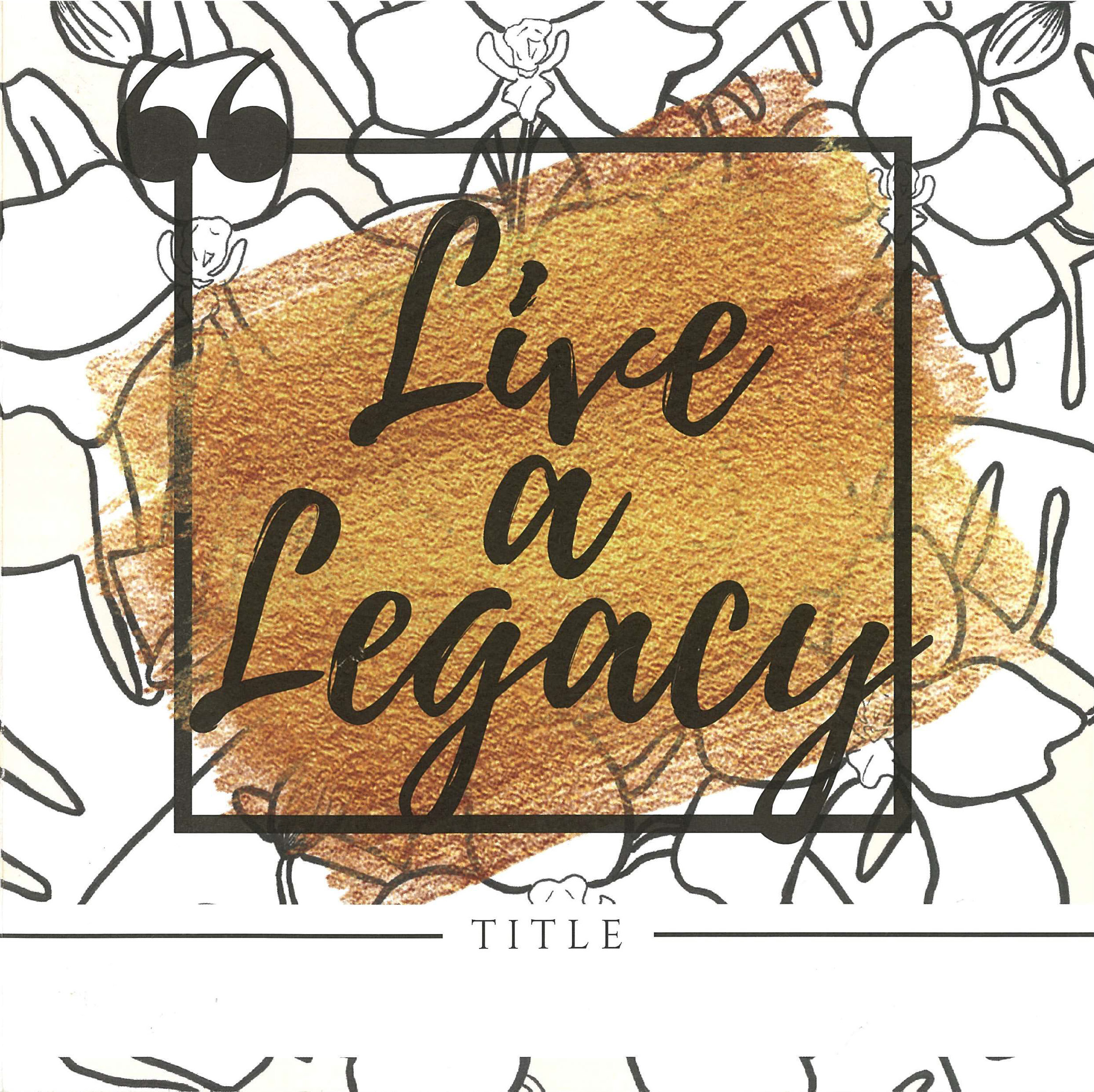
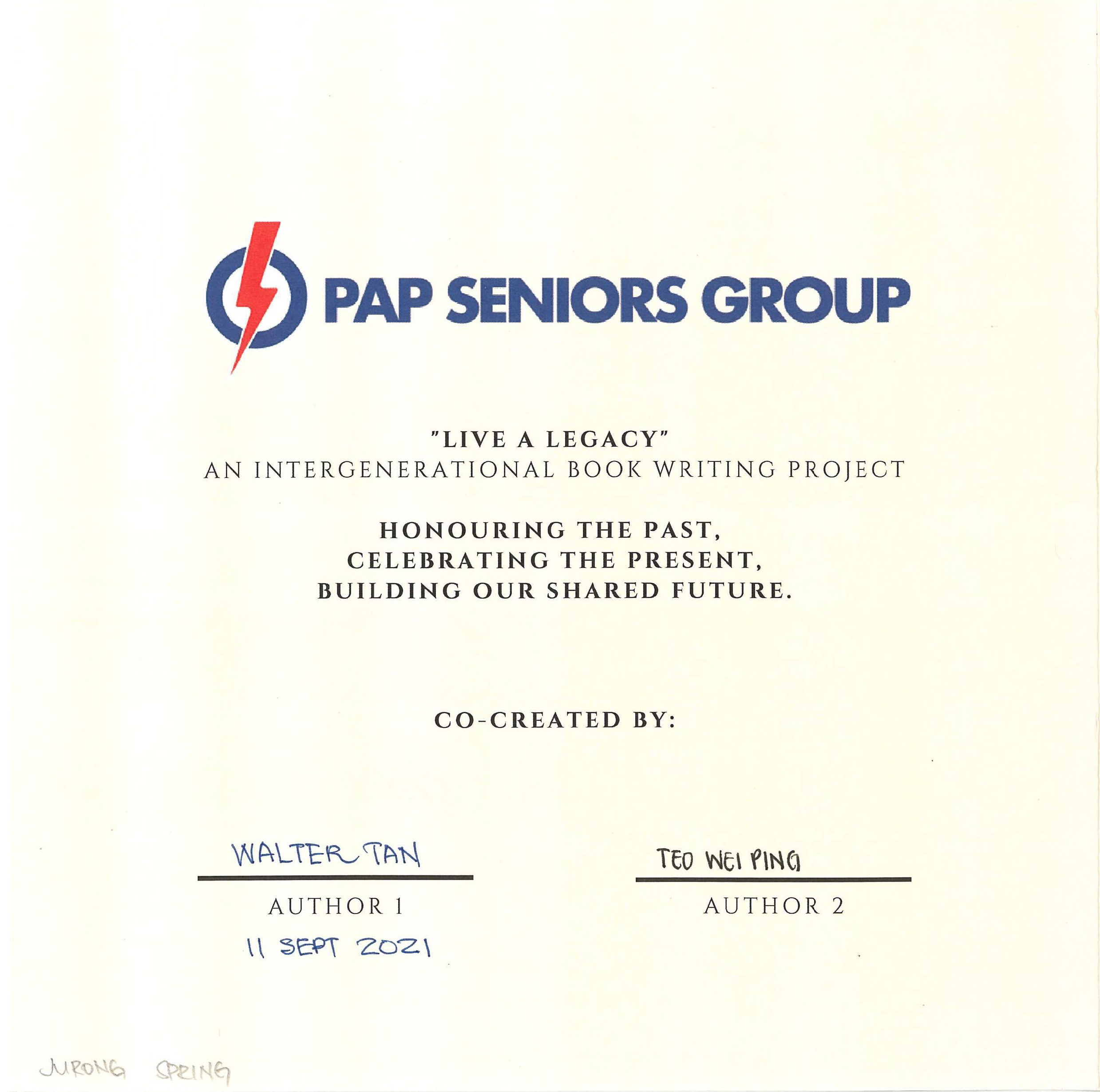
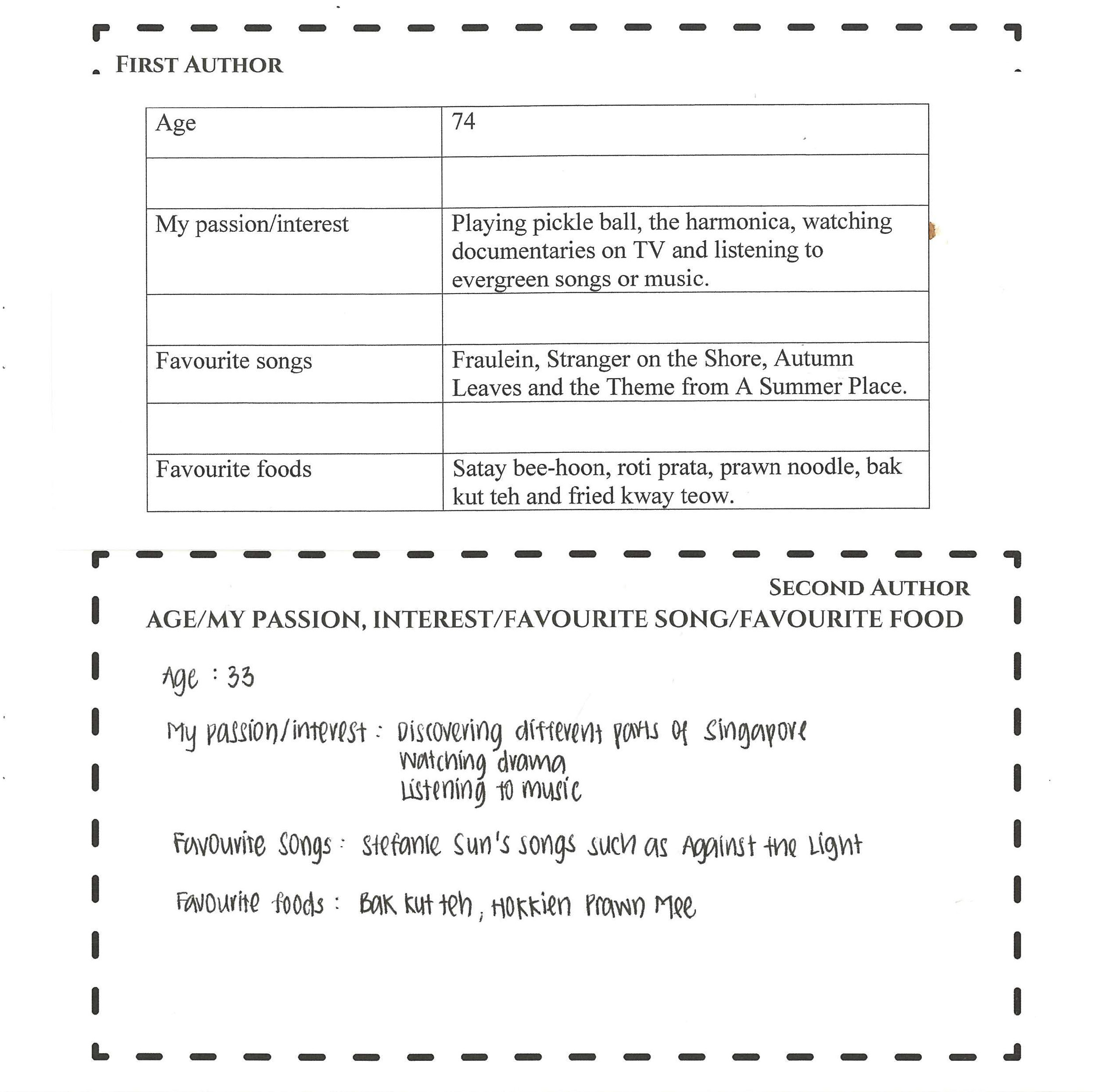
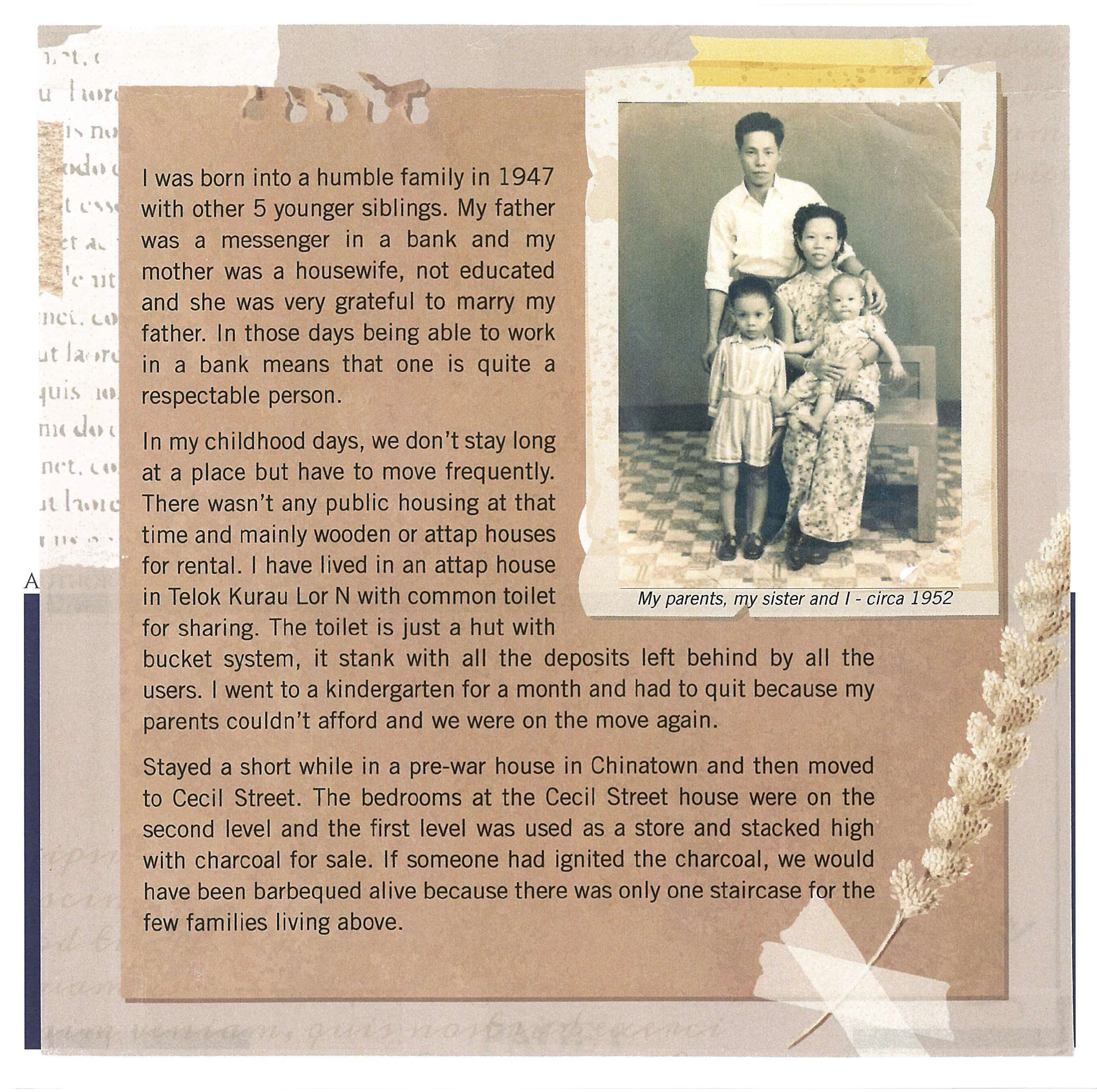
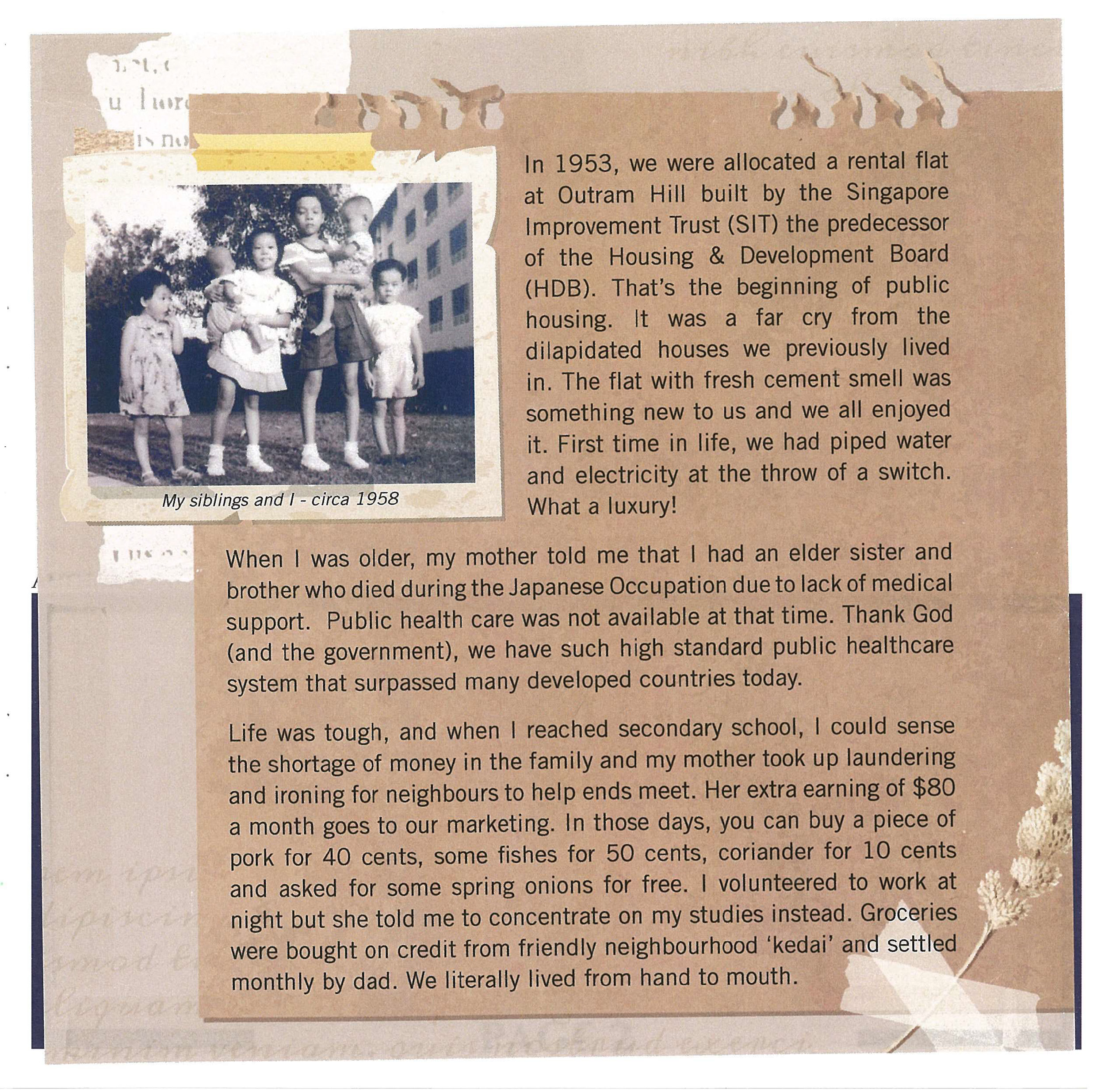
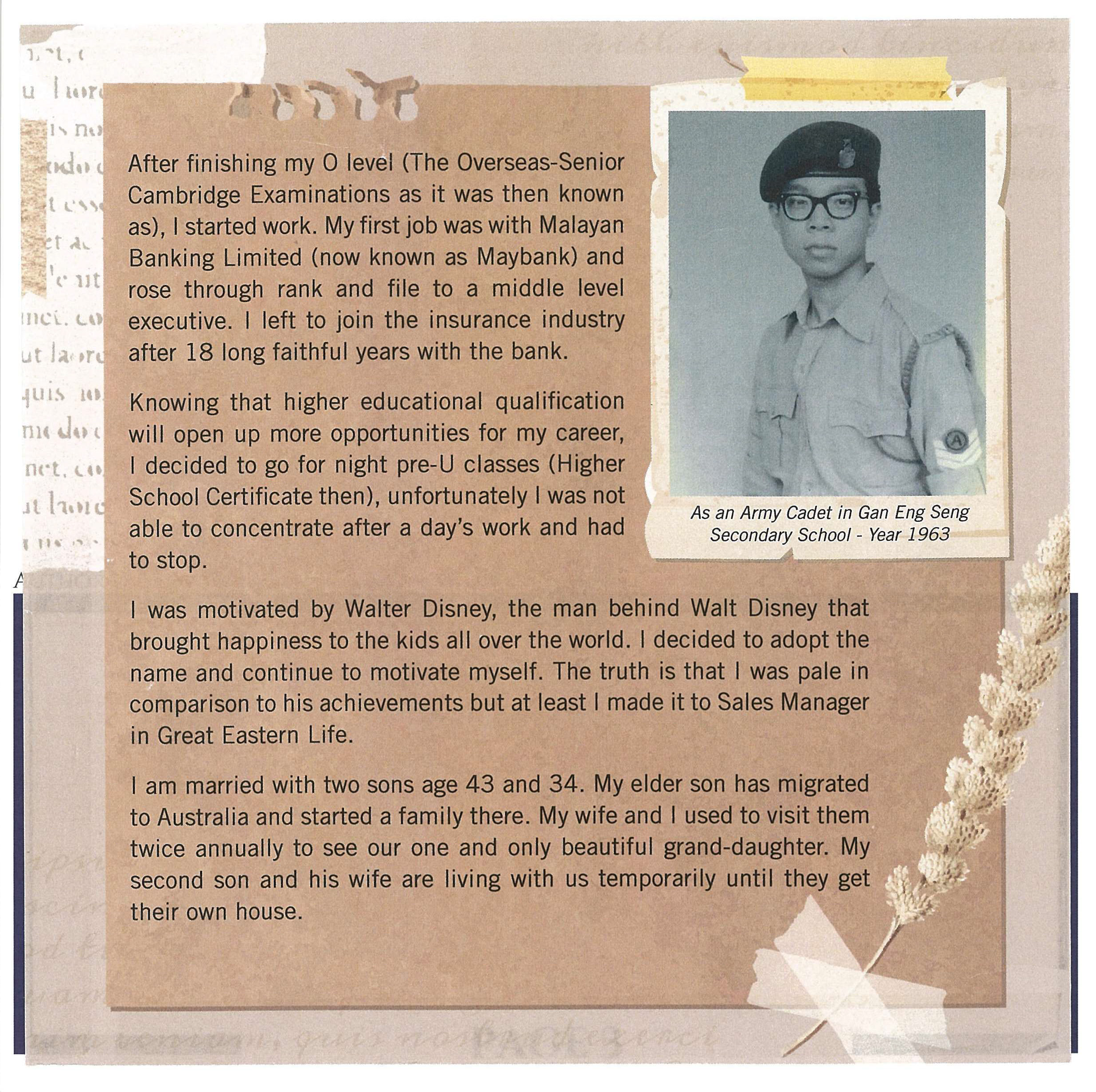
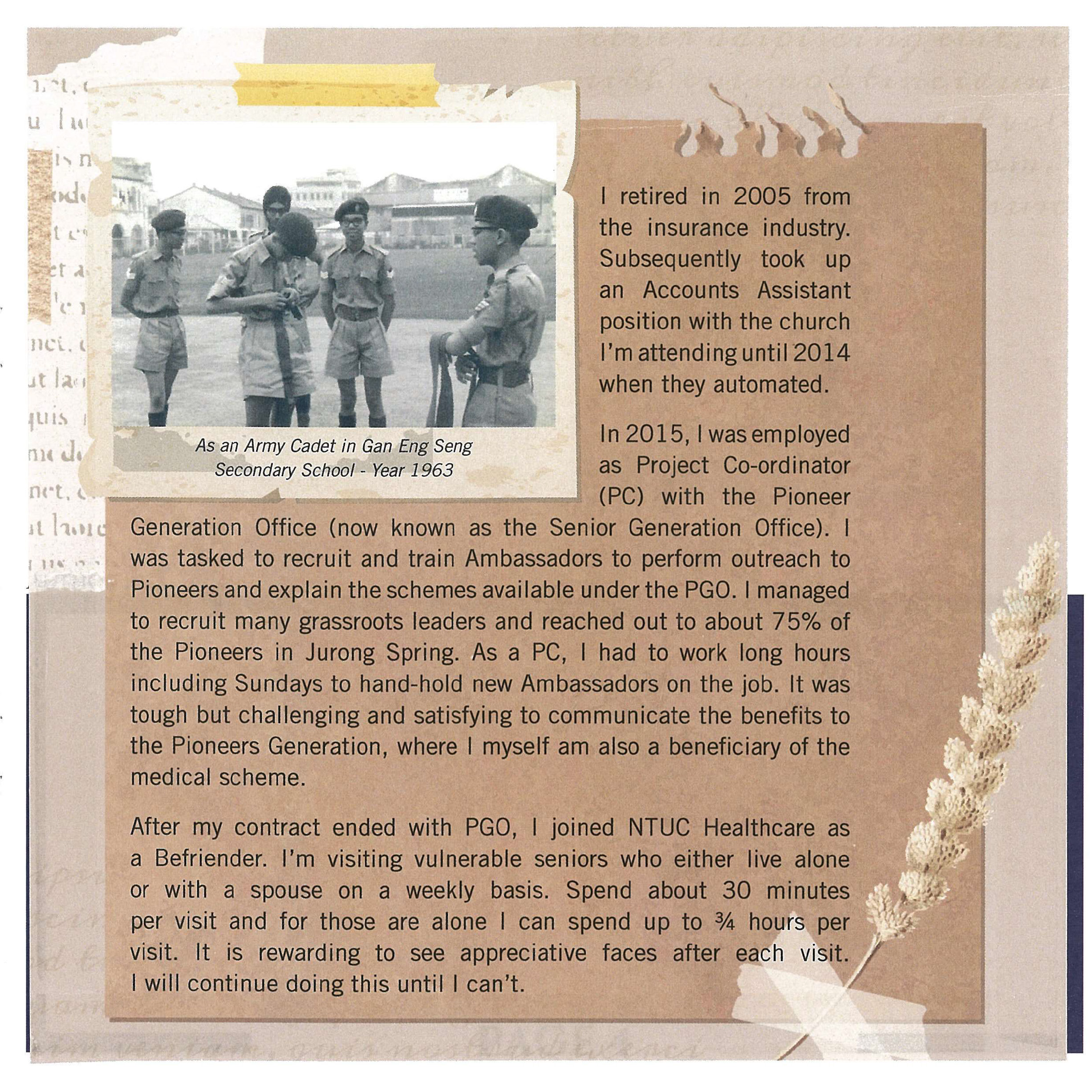
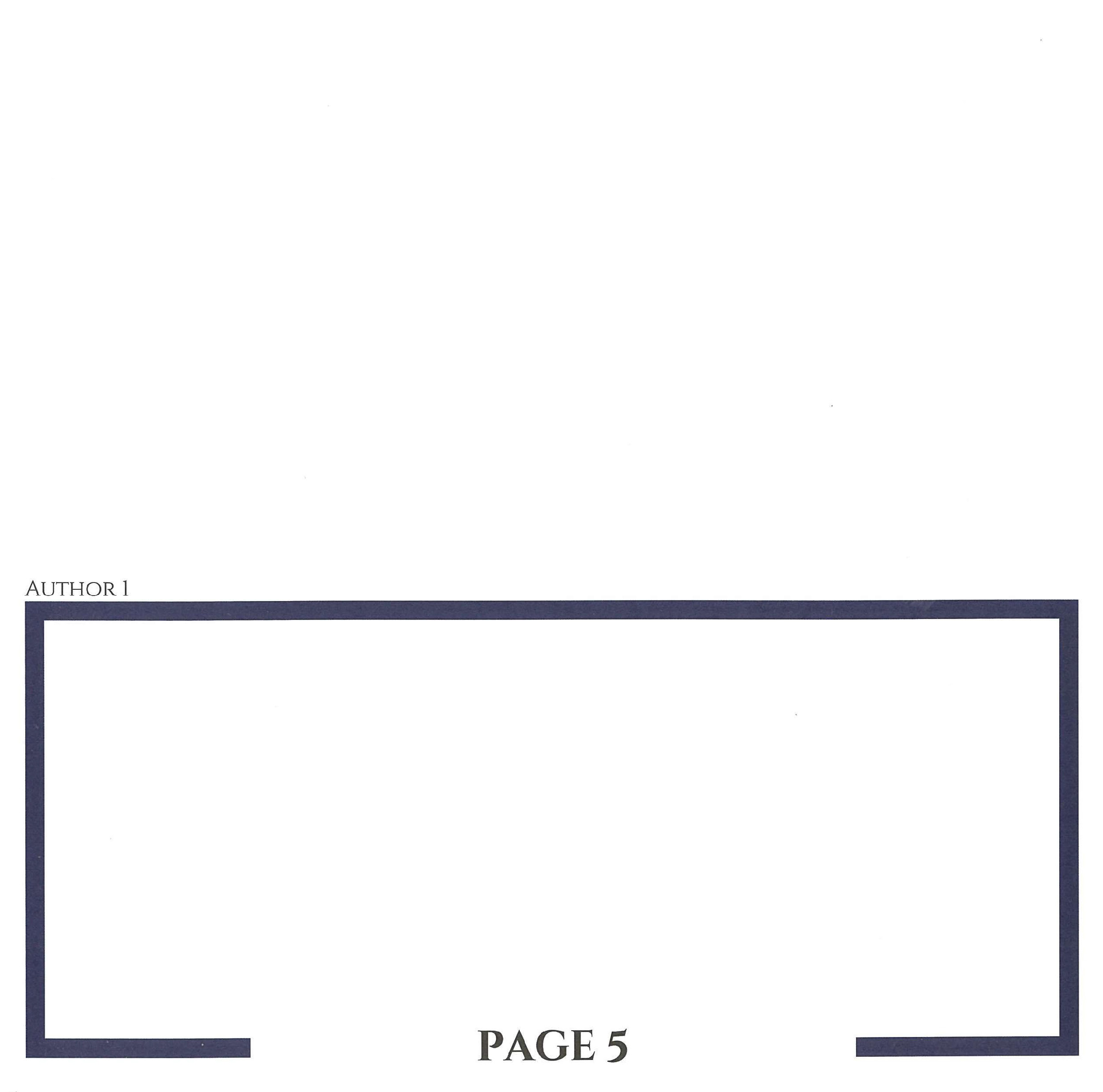
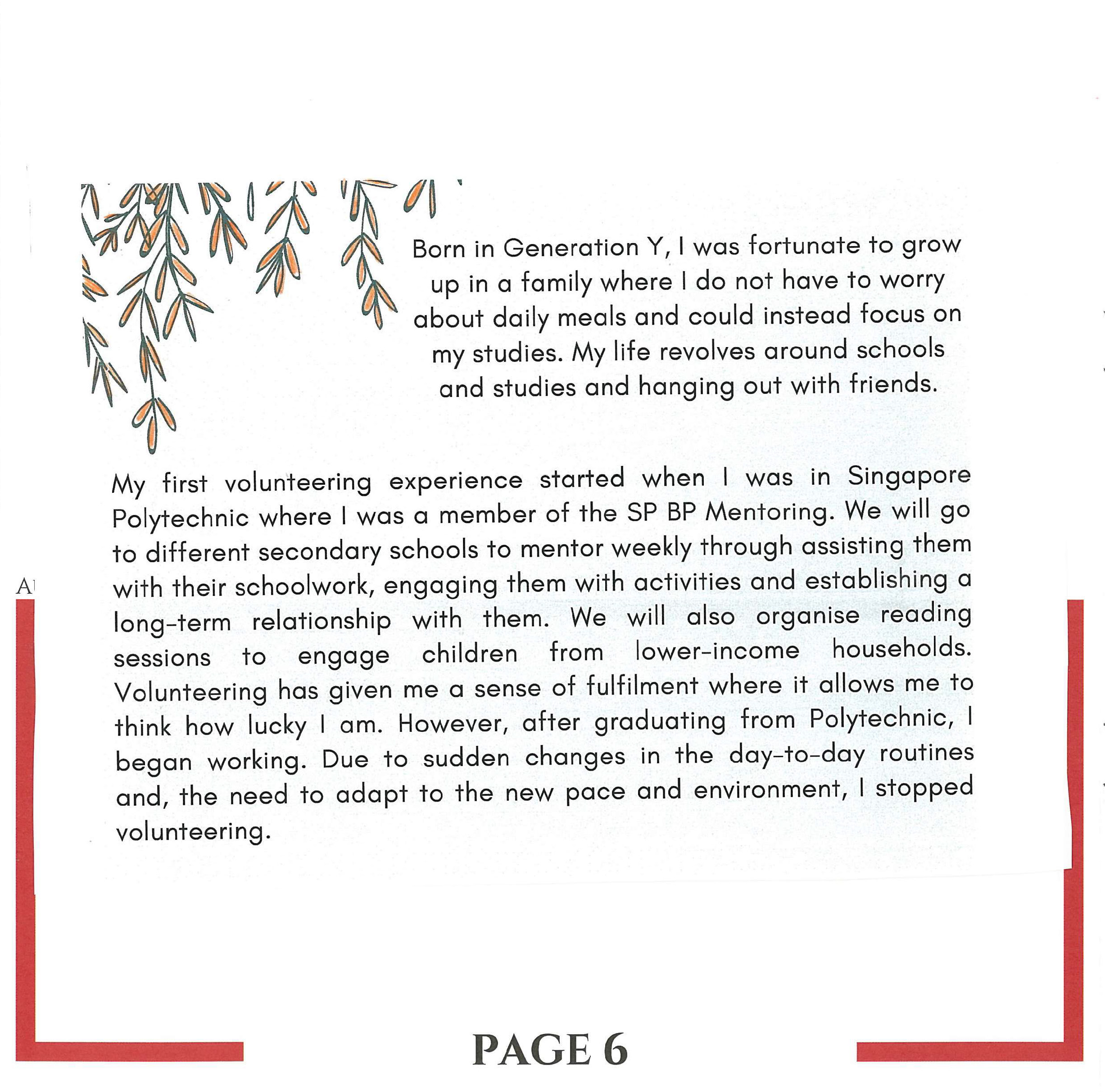
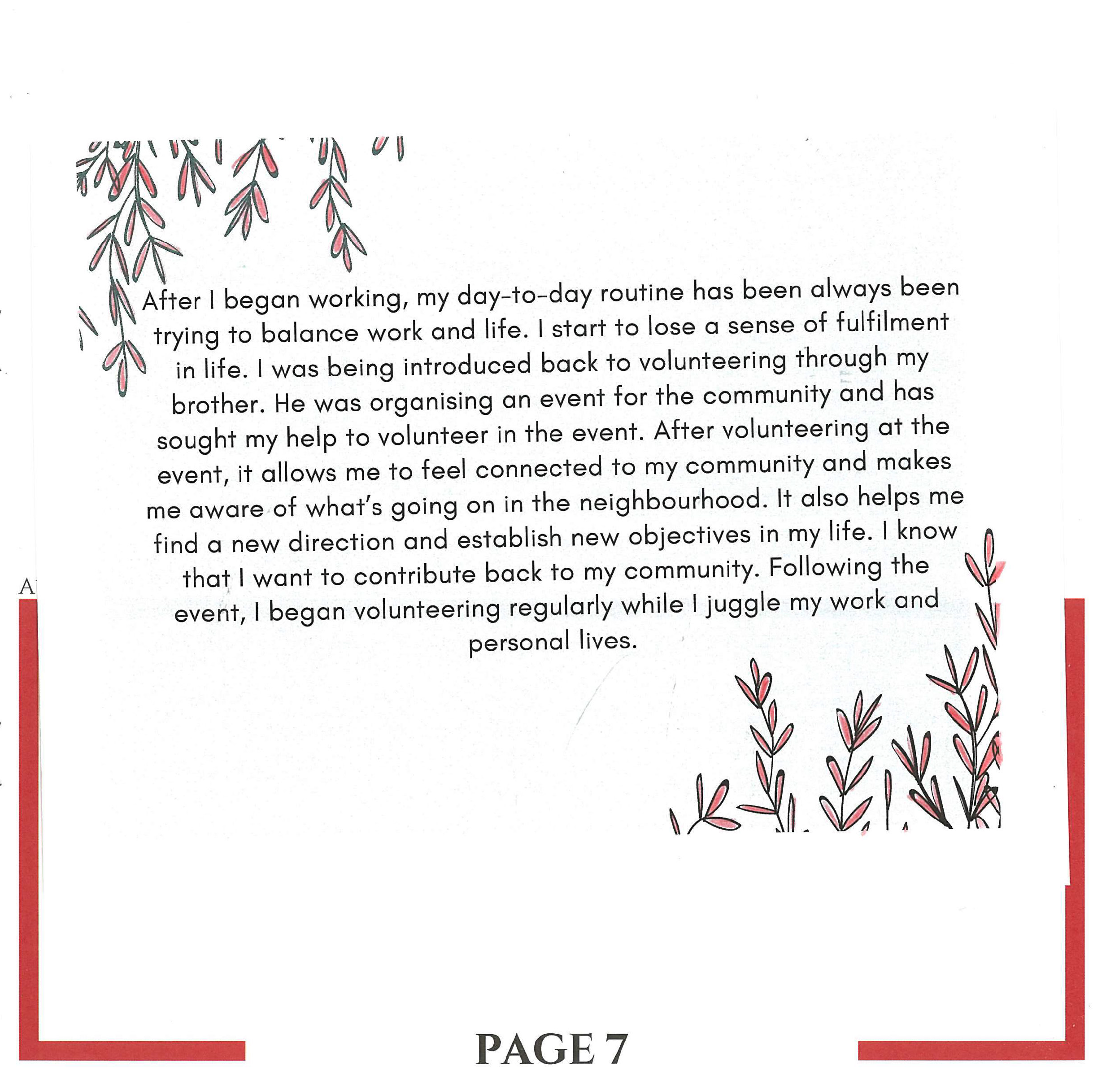
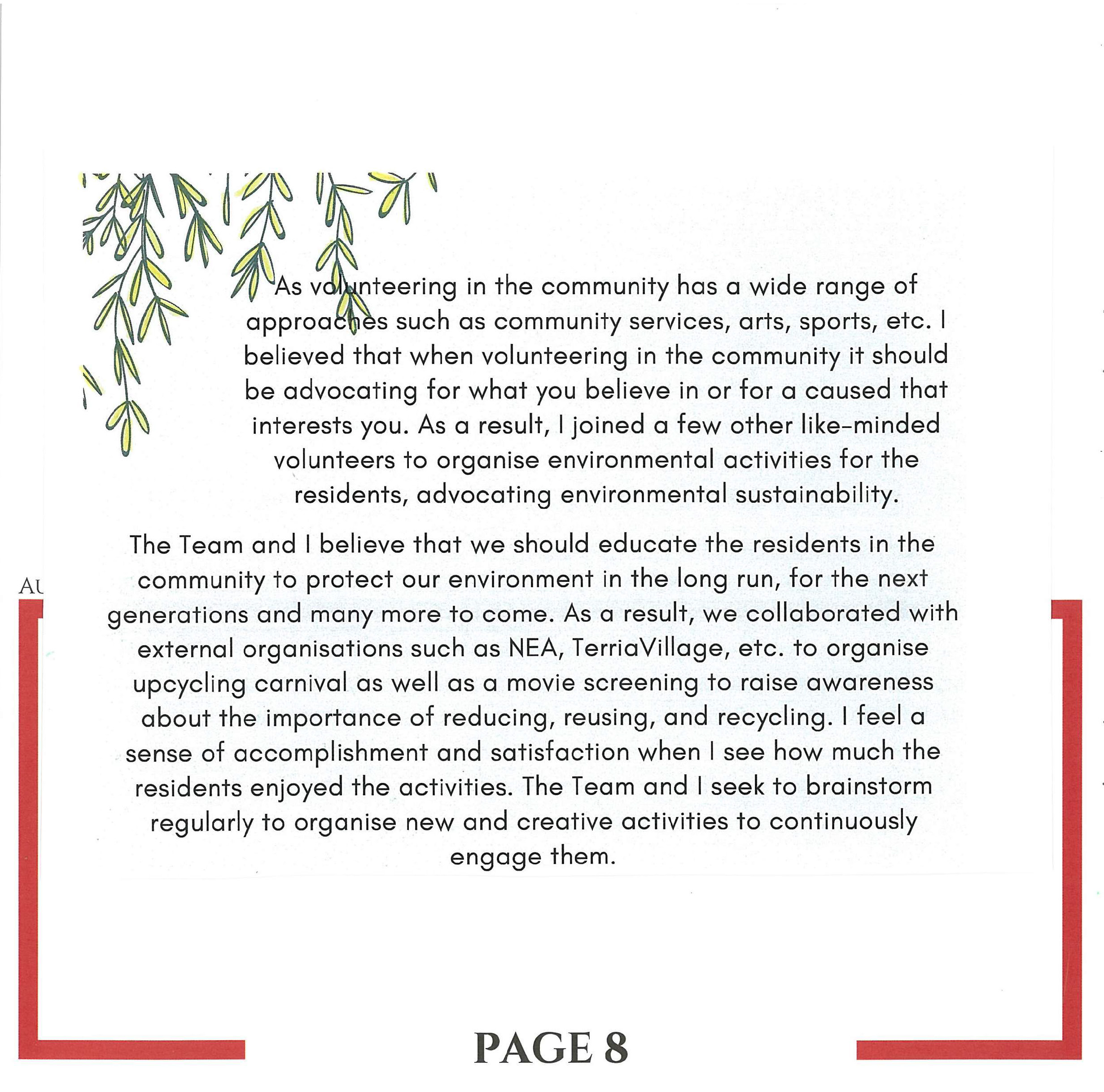
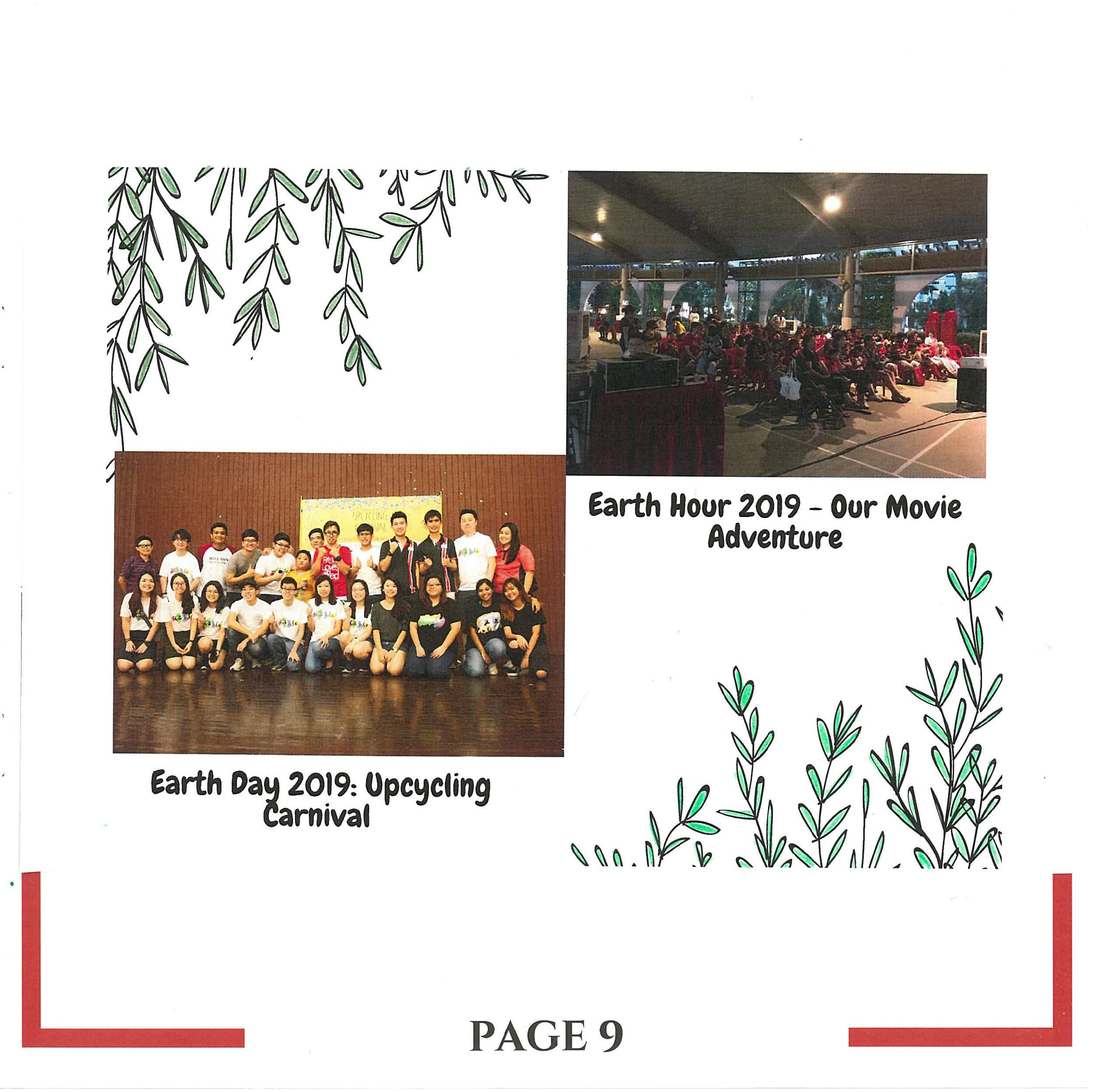
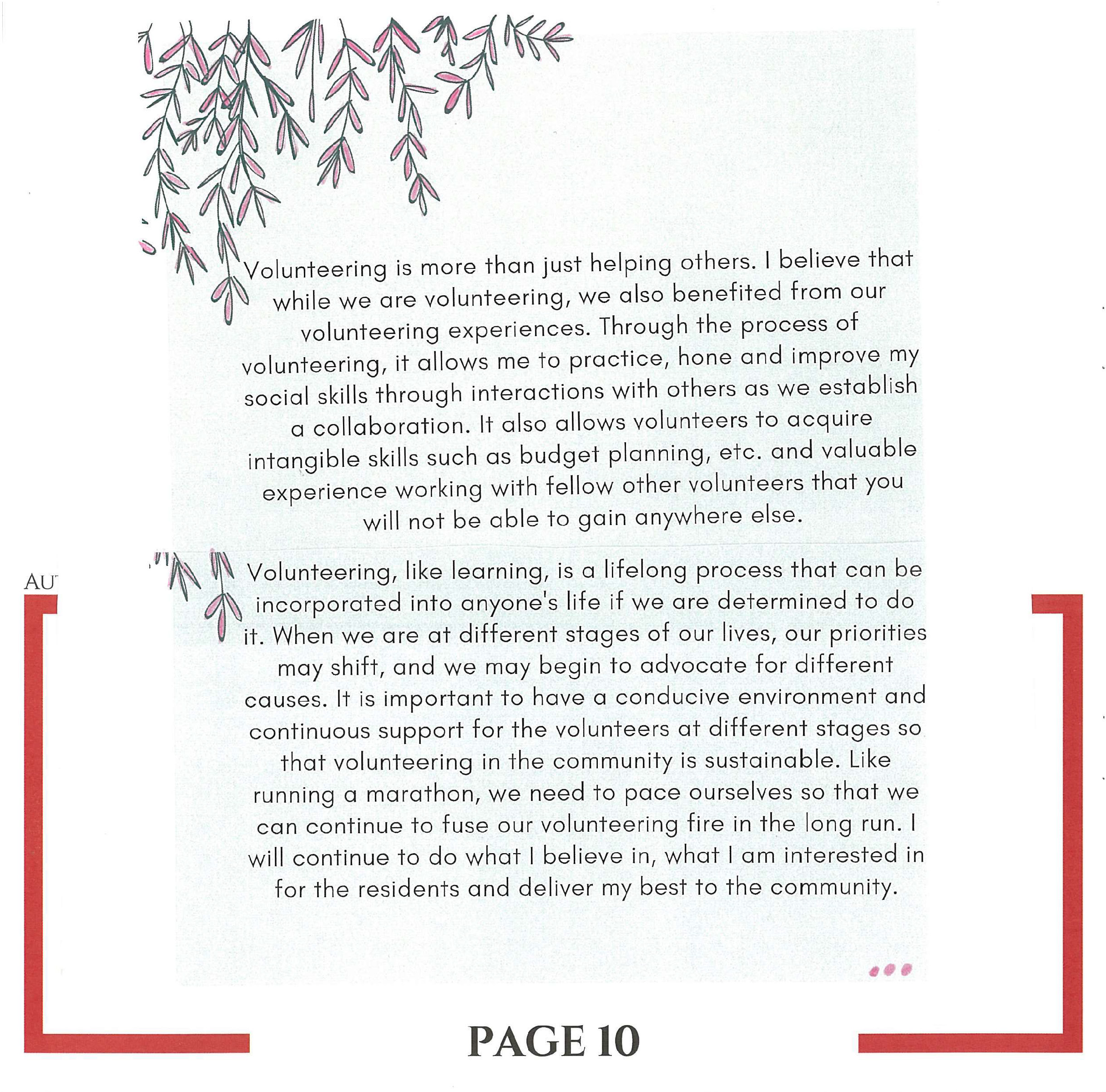
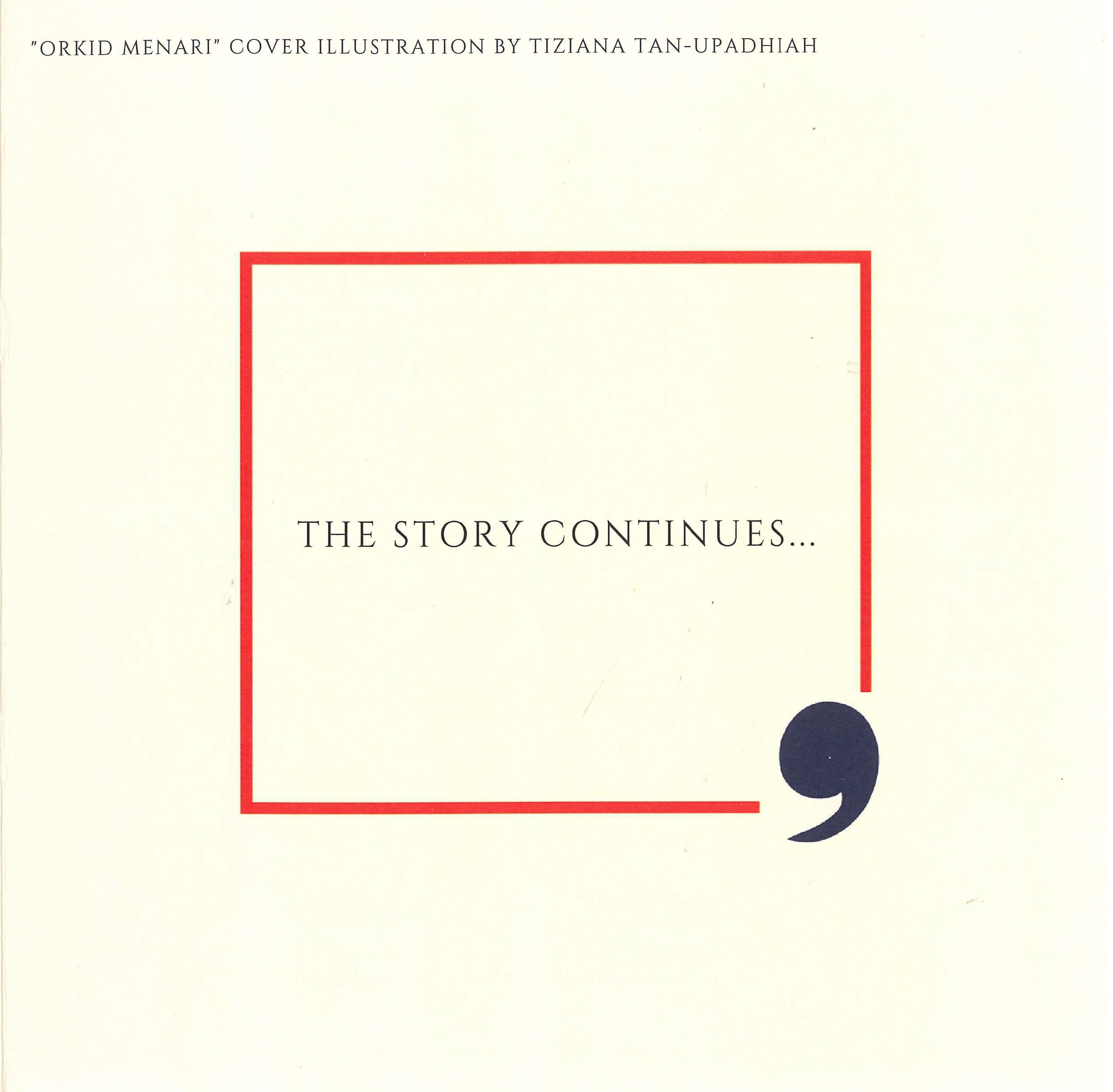
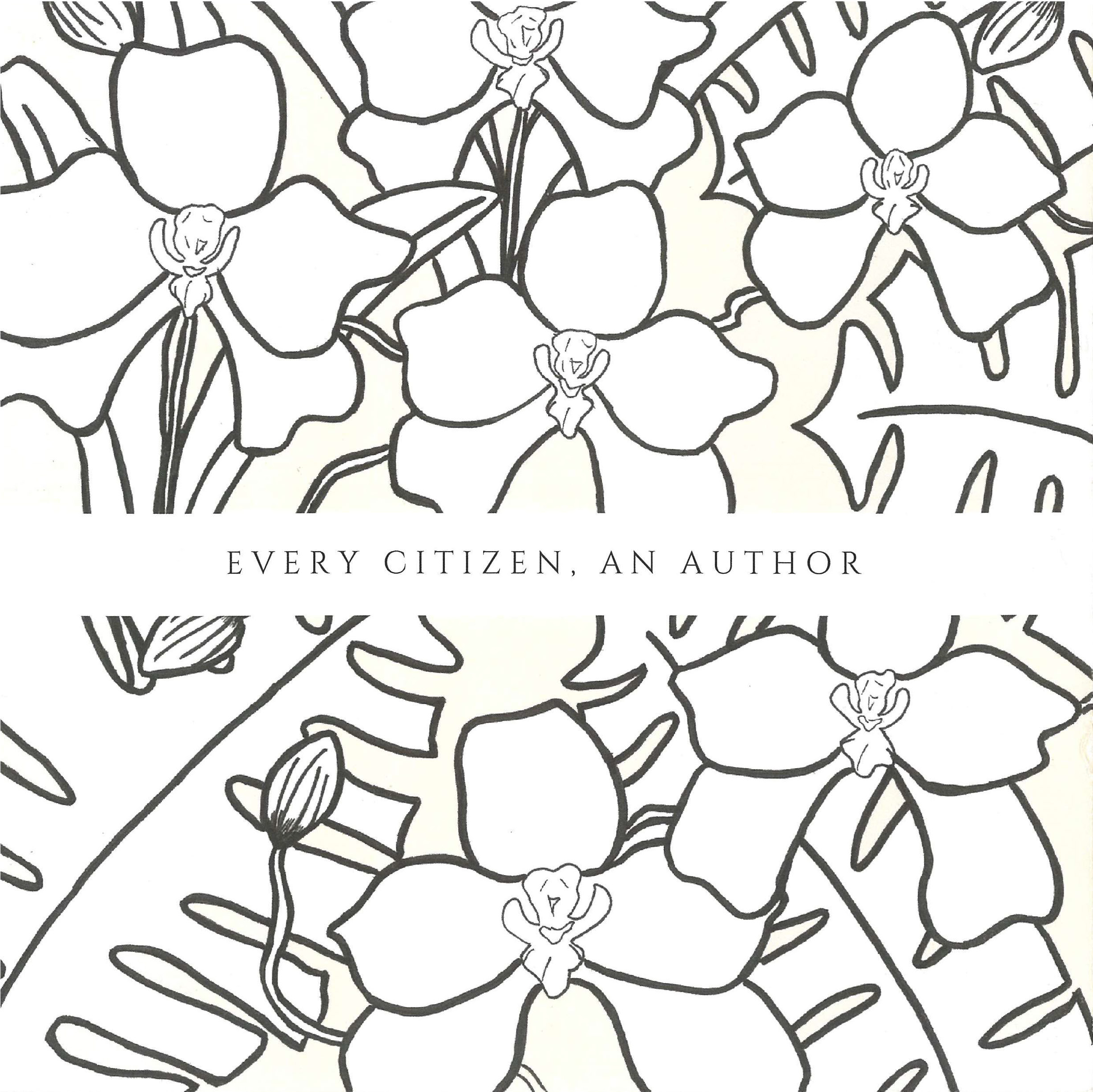
Walter Tan:
I was born into a humble family in 1947 with other 5 younger siblings. My father was a messenger in a bank and my mother was a housewife, not educated and she was very grateful to marry my father. In those days being able to work in a bank means that one is quite a respectable person.
In my childhood days, we don't stay long at a place but have to move frequently. There wasn't any public housing at that time and mainly wooden or attap houses for rental. I have lived in an attap house in Telok Kurau Lor N with a common toilet for sharing. The toilet is just a hut with a bucket system, it stank with all the deposits left behind by all the users. I went to a kindergarten for a month and had to quit because my parents couldn't afford and we were on the move again.
Stayed a short while in a pre-war house in Chinatown and then moved to Cecil Street. The bedrooms at the Cecil Street house were on the second level and the first level was used as a store and stacked high with charcoal for sale. If someone had ignited the charcoal, we would have been barbequed alive because there was only one staircase for the few families living above.
In 1953, we were allocated a rental flat at Outram Hill built by the Singapore Improvement Trust (SIT) the predecessor of the Housing & Development Board (HDB). That's the beginning of public housing. It was a far cry from the dilapidated houses we previously lived in. The flat with fresh cement smell was something new to us and we all enjoyed it. First time in life, we had piped water and electricity at the throw of a switch. What a luxury!
When I was older, my mother told me that I had an elder sister and brother who died during the Japanese Occupation due to lack of medical support. Public health care was not available at that time. Thank God (and the government), we have such high standard public healthcare system that surpassed many developed countries today.
Life was tough, and when I reached secondary school, I could sense the shortage of money in the family and my mother took up laundering and ironing for neighbours to help ends meet. Her extra earning of $80 a month goes to our marketing. In those days, you can buy a piece of pork for 40 cents, some fishes for 50 cents, coriander for 10 cents and asked for some spring onions for free. I volunteered to work at night but she told me to concentrate on my studies instead. Groceries were bought on credit from friendly neighbourhood 'kedai' and settled monthly by dad. We literally lived from hand to mouth.
After finishing my O level (The Overseas-Senior Cambridge Examinations as it was then known as), I started work. My first job was with Malayan Banking Limited (now known as Maybank) and rose through rank and file to a middle-level executive. I left to join the insurance industry after 18 long faithful years with the bank.
Knowing that higher educational qualification will open up more opportunities for my career, I decided to go for night pre-U classes (Higher School Certificate then), unfortunately, I was not able to concentrate after a day's work and had to stop.
I was motivated by Walter Disney, the man behind Walt Disney that brought happiness to the kids all over the world. I decided to adopt the name and continue to motivate myself. The truth is that I was pale in comparison to his achievements but at least I made it to Sales Manager in Great Eastern Life.
I am married with two sons aged 43 and 34. My elder son has migrated to Australia and started a family there. My wife and I used to visit them twice annually to see our one and only beautiful granddaughter. My second son and his wife are living with us temporarily until they get their own house.
I retired in 2005 from the insurance industry. Subsequently took up an Accounts Assistant position with the church I'm attending until 2014 when they automated.
In 2015, I was employed as Project Coordinator (PC) with the Pioneer Generation Office (now known as the Senior Generation Office). I was tasked to recruit and train Ambassadors to perform outreach to Pioneers and explain the schemes available under the PGO. I managed to recruit many grassroots leaders and reached out to about 75% of the Pioneers in Jurong Spring. As a PC, I had to work long hours including Sundays to hand-hold new Ambassadors on the job. It was tough but challenging and satisfying to communicate the benefits to the Pioneers Generation, where I myself am also a beneficiary of the medical scheme.
After my contract ended with PGO, I joined NTUC Healthcare as a Befriender. I'm visiting vulnerable seniors who either live alone or with a spouse on a weekly basis. Spend about 30 minutes per visit and for those who are alone I can spend up to 3/4 hours per visit. It is rewarding to see appreciative faces after each visit. I will continue doing this until I can't.
Teo Wei Ping:
Born in Generation Y, I was fortunate to grow up in a family where I do not have to worry about daily meals and could instead focus on my studies. My life revolves around schools and studies and hanging out with friends.
My first volunteering experience started when I was in Singapore Polytechnic where I was a member of the SP BP Mentoring. We will go to different secondary schools to mentor weekly through assisting them with their schoolwork, engaging them with activities and establishing a long-term relationship with them. We will also organise reading sessions to engage children from lower-income households. Volunteering has given me a sense of fulfilment where it allows me to think how lucky I am. However, after graduating from Polytechnic, I began working. Due to sudden changes in the day-to-day routines and, the need to adapt to the new pace and environment, I stopped volunteering.
After I began working, my day-to-day routine has been always been trying to balance work and life. I start to lose a sense of fulfilment in life. I was being introduced back to volunteering through my brother. He was organising an event for the community and has sought my help to volunteer in the event. After volunteering at the event, it allows me to feel connected to my community and makes me aware of what's going on in the neighbourhood. It also helps me find a new direction and establish new objectives in my life. I know that I want to contribute back to my community. Following the event, I began volunteering regularly while I juggle my work and personal lives.
As volunteering in the community has a wide range of approaches such as community services, arts, sports, etc. I believed that when volunteering in the community it should be advocating for what you believe in or for a cause that interests you. As a result, I joined a few other like-minded volunteers to organise environmental activities for the residents, advocating environmental sustainability.
The Team and I believe that we should educate the residents in the community to protect our environment in the long run, for the next generations and many more to come. As a result, we collaborated with external organisations such as NEA, TerriaVillage, etc. to organise upcycling carnival as well as a movie screening to raise awareness about the importance of reducing, reusing, and recycling. I feel a sense of accomplishment and satisfaction when I see how much the residents enjoyed the activities. The Team and I seek to brainstorm regularly to organise new and creative activities to continuously engage them.
Volunteering is more than just helping others. I believe that while we are volunteering, we also benefited from our volunteering experiences. Through the process of volunteering, it allows me to practice, hone and improve my social skills through interactions with others as we establish a collaboration. It also allows volunteers to acquire intangible skills such as budget planning, etc. and valuable experience working with fellow other volunteers that you will not be able to gain anywhere else.
Volunteering, like learning, is a lifelong process that can be incorporated into anyone's life if we are determined to do it. When we are at different stages of our lives, our priorities may shift, and we may begin to advocate for different causes. It is important to have a conducive environment and continuous support for the volunteers at different stages so that volunteering in the community is sustainable. Like running a marathon, we need to pace ourselves so that we can continue to fuse our volunteering fire in the long run. I will continue to do what I believe in, what I am interested in for the residents and deliver my best to the community.
